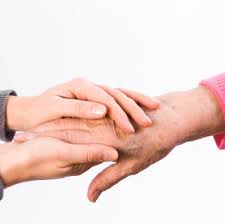 Ask any caregiver to an older loved one, and they most likely will admit that it is a stressful – but rewarding – job. But did you know that caregivers over age 65 are 63% more likely to die than people of the same age who are not caregivers? And for reasons that researchers do not fully understand caregiving is an even bigger mortality threat for women than it is for men.
Ask any caregiver to an older loved one, and they most likely will admit that it is a stressful – but rewarding – job. But did you know that caregivers over age 65 are 63% more likely to die than people of the same age who are not caregivers? And for reasons that researchers do not fully understand caregiving is an even bigger mortality threat for women than it is for men.
This rather alarming introduction is to underscore how serious it is to care for the caregiver. And there are some steps and some options that can take a lot of the crunch out of caregiving and allow all parties to focus on mutual care. If you are a caregiver to an older loved one with a chronic condition, here are some tips on how to take care of yourself along this journey:
1. Recognize your Depression – The estimate ranges from 40% to 70% of caregivers show signs of depression. It is not just “having a bad day.” Watch for your signs of irritability, heavy drinking and difficulty sleeping. Then, get professional counsel or talk with friends who “get it.”
2. Go Easy on Yourself – There are many aspects of your loved one’s condition that you simply cannot make better. But you can help to make your loved one more comfortable, and you can be there to listen. Just showing up is huge; give yourself credit for all of those efforts you make.
3. Take a Timeout – You must keep places on your calendar for “your time.” For some caregivers, that means a workout, for others just a long walk or a hot bath. To do these, you also need to enlist the help of other friends or family who can substitute for you or you can engage respite services from a local agency.
4. Make Your Health a Priority – Do not skip a doctor’s appointment, do not delay an annual physical or routine diagnostic procedure, and stay current with your medications. Be alert to other physical manifestations of your stress like pains, acid reflux or poor sleep. Get help for you so that you can help your care receiver.
5. Make a Plan – Engage the services of professionals who can help you explore your options. When home is no longer an adequate setting for caring for your loved one, get help to investigate the options that can be brought into home or where the new home is going to be. Remember, hope is not a plan and that there are professionals like care managers who know things you need to know.
It is entirely possible to give until it hurts. But that does not really help your care receiver or you as the caregiver. Put yourself in your loved one’s place, and consider what you would expect of a caregiver. And at the end of each day, recognize that you have done all that you can, and that is more than enough.
Charlotte Bishop is a Geriatric Care Manager and founder of Creative Care Management, certified professionals who are geriatric advocates, resources, counselors and friends to older adults and their families in metropolitan Chicago. Please email your questions to info@creativecaremanagement.com.



